Gender Transformative Education
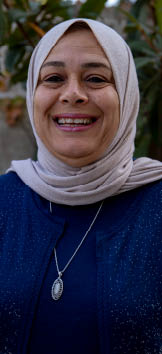 By Hadeel Qazzaz
By Hadeel Qazzaz
Walking on Gaza’s beach with my seven-year-old niece, the realization struck me: She knows nothing about the biology and ecology of the sea. My smart young niece cannot name the shells and does not know how the tide works, even though she can relate a thousand other pieces of information not related to her immediate environment or her own body.
I recently participated in a national committee appointed by the prime minister to revise the Palestinian curriculum. This measure was taken in response to strong criticism regarding education in Palestine, focusing on the curriculum’s lack of gender responsiveness and respect for human rights, religious diversity, and minorities.
Beyond textbooks with gender-sensitive images and language, education must connect students to their environment and make sure that our children look into and around themselves, developing critical minds that ask questions. Such inquiry may start with why the sea throws out shells and should explain why poppy flowers appear only in March and return every year. But it must also include why segments of our society are not guaranteed rights outlined by CEDAW. It reaches to “Why does our teacher say things that undermine the role of women while my mother is the main breadwinner of the family and the real decision-maker?”
Many of the issues affecting Palestinian society are not the responsibility of the education system. But it must embrace its huge responsibility in helping create the curious minds that will know where to look for answers. Education should question the surrounding natural environment but must move on to scrutinize the social and political conditions, a task not easily incorporated into a textbook. It is a practice and involves learning by doing – but the only way to make our education system gender-transformative and capable of changing the lives of Palestinians.
Dr. Hadeel Qazzaz is a women’s rights activist and a researcher in gender and development.
From the Village of Bardala to Bologna Italy
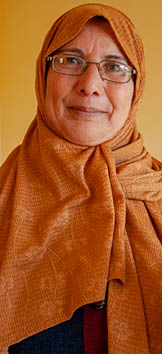 By Kifaya Frihat
By Kifaya Frihat
My name is Kifaya Frihat, and I live in the village Bardala in the northern Jordan Valley. When my husband left me and our twelve children to marry another woman, I not only suffered all kinds of social constraints (unable to tell my family or seek help because I feared they would force me to leave my home and children), I also struggled to secure a stable income to raise them. Taking up farm work, hard work under harsh conditions, I did not have a steady income and frequently could not meet my family’s needs. I worried much because I was the breadwinner and had to fill the roles of both father and mother. Things became even more difficult once I discovered that I had kidney cancer. But I survived, and after a long treatment began to work on farms again – which was very bad for my self-confidence.
The best decision in my life was to participate in a project offered by the Business Women Forum. As I was determined to change my life, this project helped me realize my dream and start a soap-making project. I received tools and raw materials and participated in soap-making courses and life skills coaching for over one year. This work has transformed me from an unknown woman from Bardala to a well-known soap maker who sells her products to local residents and tourists alike. It has increased my self-confidence and interest in life. Also, it has strengthened my community’s acceptance of me because I became a productive woman and a decision-maker in my family. At fifty years, I now own my very first passport, and as part of the Palestinian delegation for agribusiness projects, I traveled to Bologna on a study tour where I visited successful small projects that gave me hope and strength to grow my project.
Kifaya Frihat is a soap maker and has been a beneficiary of Business Women Forum–Palestine since 2017.
A Light at the End of the Tunnel
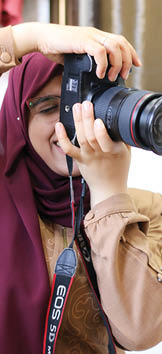 By Doa Eshtayeh
By Doa Eshtayeh
I am from Nablus, 31 years old, and a mother of two children. One of my children has severe autism, and my husband is detained at an Israeli prison, yet I am accomplishing my dream of gaining independence, success, and self-esteem – even though I could not find a job that would allow me to apply my degree in applied chemistry.
When I realized that my possibility of finding a job was decreasing, I started thinking out of the box and considered learning new skills that better fit my situation as a single parent with a special-needs child. I have to take my younger child regularly to rehabilitation sessions and therapeutic classes.
I decided to learn photography. My family, especially my mother, supported me and helped me take care of my children as I began to take courses and started working as a photographer for various studios in early 2016. In 2017, I established an online photography shop, specializing in wedding and children’s photography. My shoots were well-received as they highlight the personal character of my clients.
In 2018, I heard of Business Women Forum, an organization that supports women and helps them grow their business. Being selected as one of their trainees helped me improve my photography skills and taught me how to market myself, expand my business, and attract clients in other governorates. The project also funded a brand-new photo printer that allowed me to print high-definition photos at home. Recently, I have opened a photography studio in Nablus and hired four employees, three of whom are working full-time.
My children are my motivation! They keep me going and striving to improve myself despite the difficulty of balancing my responsibility for my son’s special needs with my work. I advise every woman to start her own business and become independent, a leader in her community.
The Greatest Expectation
By Silvia Albina
The greatest expectation in life is longevity – possibly coupled with health, happiness, and personal success. Expectations, however, are only strong beliefs. When I lost both of my parents early, I thought I was dealing with the tragedy of a lifetime. When at the age of 34, I was diagnosed with breast cancer and survived, I always thought, “Tragedy, here I am, I’ve dealt with you. Earlier than expected, but at least I got you out of the way.”
I was wrong! My beloved husband was diagnosed with cancer twelve years later – a devastation, to say the absolute least! Apparently, tragedy does not discriminate, nor does it care how many times it repeats itself or whom it affects.
I am now a single mom raising three beautiful children. Our road is long and extremely challenging. My children struggle, and I hide my pain. I have to be strong. As I broadened my shoulders to carry on, I realized that I pull my strength from the people in my life. They are my pillars. My supportive and wonderful friends fill my heart with joy and love, as do my incredibly supportive family; they have not left my side for a single moment. Early after my husband’s passing, I grappled with the decision whether I should stay in Palestine or move my family to the States to be with my brother and sisters. But I realized how fortunate I am to live in my beautiful Palestine, an occupied land that has so much to give. My community has embraced me with open arms as wide as our Sea. The warmth and beauty of my land, my people, my home are where I find my strength. Just as the roots of our olive trees are firmly embedded in our soil, so will my children be.
Silvia Albina was raised in the diaspora but returned to her homeland over 20 years ago.
Today I Love Myself
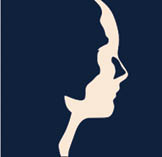
My name is MT. I am a young Palestinian woman from Bethlehem who aspires to become a fashion designer and build my own business while raising my two daughters in dignity. I had to overcome many obstacles, the largest being the fear of my husband.
I am a victim of domestic violence. Forced to marry at age 18 years, my husband tried to kill my dream of becoming a fashion designer by not allowing me to study, work, or do anything to develop my skills and knowledge. Worse, however, were his cruelty and constant humiliation that affected me badly, making me feel worthless and powerless. Only my strong will and my parents’ support kept me going. Wanting to end my pain that was caused by the physical, psychological, economic, and verbal violence I experienced from my husband, I enrolled in a design course, planning to start a small business. I had the strength to persevere against the opposition of my husband and, with the help of my family, enrolled in OBADER, a program offered by the Business Women Forum that has helped me make my dreams come true. I have overcome self-destructiveness and hopelessness. Meeting other women from different backgrounds and hearing their stories, I feel no longer alone, and I am able to do something with my life. I have been able to transform myself, changed my personality and the way I see things, and now feel stronger and confident. Even my family perceives me differently now and believes in me and my project. For the first time in my life, I have started to love myself.
A beneficiary of the Business Women Forum–Palestine, M. is a strong and motivated young woman who is determined to make a difference in her life and that of others. With the support of her family, she has started enlarging her small project and is trying to get a divorce so she can start a new chapter of her life.
Rise, Fight, Be Reborn – Be the Woman You Are Now!
Courtesy of GROW
Pressured by my family, I was only 15 years old when I got married. I had no awareness or knowledge of what that means, and little did I know that this moment would alter my life forever. During my ten years of marriage, I was beaten constantly by both my husband and my mother-in-law. I was not allowed to continue my school education and could not even leave the house unaccompanied.
At age 25 years, I secretly started attending counseling sessions organized by UNRWA. I could no longer endure the harsh years of physical and emotional violence nor the way the rest of my family remained silent about it. I finally ran away from the house and applied for divorce through the help of a local organization. For more than a year, I was denied seeing my four children (the oldest was nine years old, the youngest was four), even though I had been granted custody.
The agony of losing my children compelled me to take stock of my life. I promised myself that I would never be broken again. I decided to rise, fight, and be reborn – to be the woman I am now. So, one day, I just took my children from my husband’s house while he was away. After that, I received death threats from his family.
Without any financial support, I lived at my parents’ house and started working various small jobs, which enabled me to renovate the old family house where my father allowed me to live with my children. Six years later, when my father became sick, and while I was away, my mother and brother returned the kids to my husband and kicked me out of the house. Consequently, my husband was given custody of my children.
Again trying to put the scattered pieces of my life back together, I negotiated at times with my family to let me stay with my children and at other times with my husband who refused to let me see my children – whom I was able to meet secretly in public places only. I left my family, managed a few months later to settle in an apartment, and got back my children who were old enough to choose to live with me.
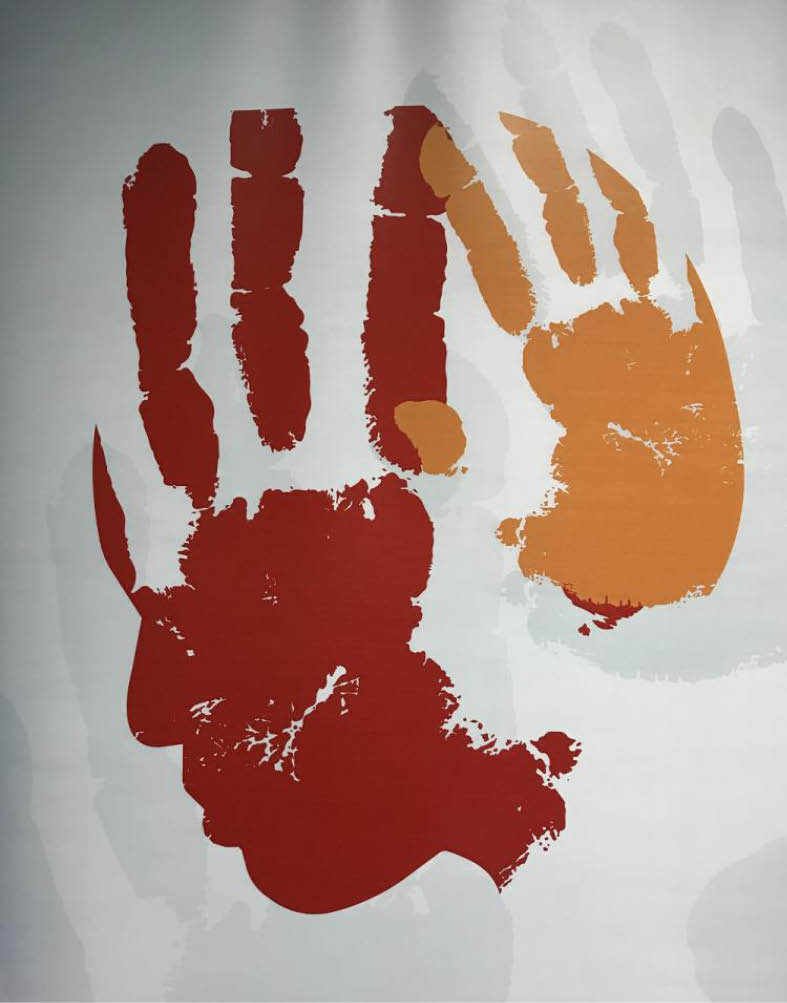
Since then, I have been fighting for a better future for us. Not an easy task for a divorced, 33-year-old woman who lives alone. I had to stand strong in the face of social criticism and exclusion. Through a grant from GROW, I am now developing my small business, producing candles on olive wood holders. Gradually becoming financially independent has enabled me to stand on my feet and raise my children by myself. I am stronger than ever, but this is just the beginning. There is still a long way to go.
Z.B. is a beneficiary of Generating Revenue Opportunities for Women and Youth in the West Bank (GROW) project, funded by the Government of Canada and implemented by Cowater International in cooperation with the Palestinian Ministry of National Economy.
An Alternative Vision Through Film
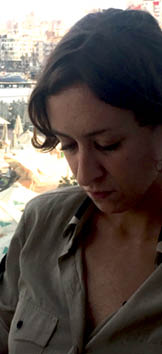 By Basma Alsharif
By Basma Alsharif
As a Palestinian filmmaker living in the diaspora, I am both lucky and cursed to hold a Gaza ID. Lucky that it has allowed me to continue visiting Gaza, as restrictions have tightened around the besieged territory, and cursed, as it has meant that for nearly two decades now, I have been forbidden from entering any other part of occupied Palestine. This is a standard policy, at least since the Oslo Accords, and has forcefully not only cut off our sense that as a people we come from one geographical location, but also complicated our perception of enduring the same struggle.
The strength of Israel’s global economic alliance is synonymous with the viability of the occupation. As the internal population is fractured, and various statuses of legitimacy within and outside of the territory have been created, there is no singular voice, no fixed narrative that can articulate what it means to be a Palestinian today. Rather, there is a multitude of voices and experiences.
In response to an invitation to curate a program of films to be weaved into, run parallel with, and engage in the themes of the upcoming PalFest 2020, I have put together a small, powerful selection of films that I see as responding to Palestine’s relationship with the Global South.
The most uncomplicated definition of the term Global South delineates rich versus poor countries, developing versus industrialized nations, first versus third worlds as a status that is geographically locatable. A more nuanced understanding of the term acknowledges the deterritorialization of this status and begins to trace the supremacy of economic power irrespective of north, south, east or west. Here, we can begin to imagine the complex experience of individuals subjugated by the hegemony of economic alliances that define borders, validate identities (whether racial, religious, or sexual), and decide who is afforded privilege under the nation-state.
A mix of short films and feature-length works will be screened throughout PalFest 2020, providing an alternative vision to the ruling class’s ownership over history, the present, even the future.
Visual artist and filmmaker Basma Alsharif is based in Cairo, Egypt.
Fake Feminism for Settler-Colonial Patriarchal Benefits
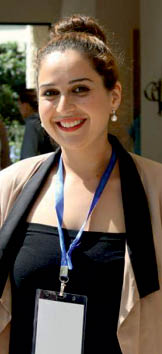 By Amina Abdulhaq
By Amina Abdulhaq
As they are trapped between taboos, social norms, various types of agendas, and international funding, Palestinian women and young women active against the Israeli settler-colonial patriarchal regime are discouraged from expressing what they want and feel. Expected to choose our words and actions from a catalog that has been designed for us, our options are limited – similar to when, as young girls, we were allowed to choose from a selection of pretty pink dresses only.
Women’s voices, needs, and fears are purposely being buried. Patriarchy benefits men, boys, and elders who care about women’s rights only when it is time to apply for funding, pay lip service only when it reinforces their power. “Good” feminists are women who agree to everything listed in the catalog prepared by men in power. Their agenda is the only one that counts. Women who refuse this complex matrix of power will be excluded – prey to false accusations to prevent them from pursuing their struggle for liberation.
It is time for Palestinian women all over the world to have a real chance. It is time we raise our voices and shout at the top of our lungs what we want and need, refusing to accept boundaries or limitations. It’s time to stop muzzling and postponing women’s right to community protection because “it’s not the time yet.” More “awareness-raising” sessions and human rights slogans are not what we need. We know what must change. This change will begin only when women, young women, and girls feel safe to express themselves and have the freedom of choice.
Supporting Palestinian women’s activism means supporting our rights to our land, our freedom of mobility, protection from honor killing, and, most importantly, from Israeli attempts to erase our existence. We are here to stay. We, the owners of the land, have deep roots that no interlocuter could ever understand.
Amina Abdulhaq is a young Palestinian woman fully devoted to raising all oppressed people’s voices, inclusively embracing our diversities and uniqueness.
No More Boxes!
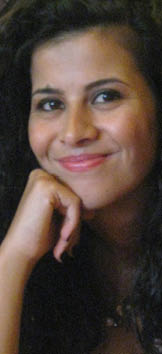 By Muna Nassar
By Muna Nassar
I am defining myself as a Palestinian woman who always questions and challenges the gender roles imposed by our society because these expectations are not in line with my nature. Attending an all-girls private school, one of the defining moments in my life relates to an incident I encountered with a teacher. Our behavior used to be evaluated every semester, and I always received the grade “good,” which comes in third, after “excellent” and “very good.” Repeatedly, I had asked the teacher what was considered excellent behavior and not received a clear answer, when one day, a girl received the rare grade “excellent.” Praising this girl, the teacher explained: “Se is always quiet and calm, never talks or talks back, and, more importantly, never objects to anything no matter what is happening. In other words, she is the perfect girl.”
We live in a world that places men and women into boxes of different sizes and limitations. If either a man or a woman transcends these standards, they are challenged by society. In an interesting interview, fathers accompanied by small children were asked how challenging they considered being a father and having a career at the same time. Most of the men questioned were surprised; only a few of them understood the question and said that no imbalance in their working lives had occurred as a result of having children.
There are no justifications for the ongoing injustice that keeps women confined by centuries-old expectations – not to say chains. The problem is that our understanding of gender imposes roles on us that do not take into consideration a person’s individuality. Gender matters because it paves our way forward; it colors how we see the world. But gender should not be a box, prescribe a lifestyle, or constitute a large open-air prison. We must remember that while gender is part of a culture, culture does not make people. People make culture. So it is really up to us to create a culture that recognizes the humanity of women and men.
Muna Nassar is a writer, freelance translator, and project coordinator at Kairos Palestine.

